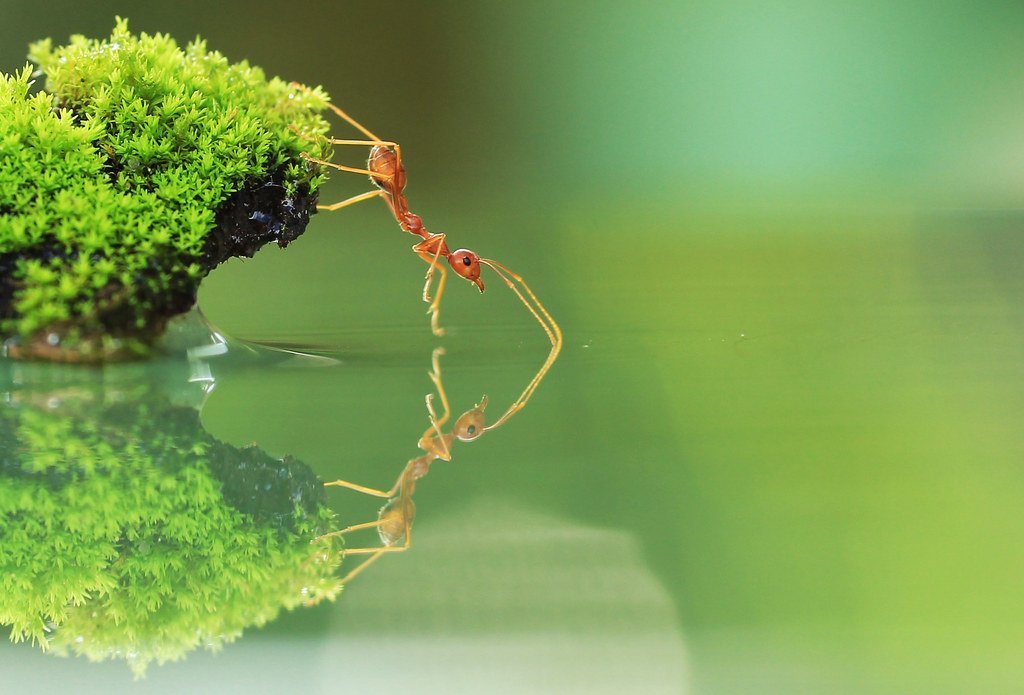
Learning from the Tiny but Mighty Ant: Insights for Corporate Success
Even though they are small, the ant is very smart, and the way they act can teach us a lot about how to run a business successfully. In a colony, all the ants work together and know exactly what they are supposed to do. Companies might be surprised to learn a lot from ants, especially about how to work together, be a leader, and get things done. Even though they are very small, ants are some of the most adaptable animals in the world.
They can live happily in both jungles and deserts. The key to their success is how well they organise their social lives and how hard they work. Over many years, scientists have studied ant nests and found that the ways these insects act are a lot like what is considered best in the business world.
A University of Arizona study says that ant colonies are like “superorganisms” because each ant works together as a single unit and is very important to the system as a whole. Because each employee has a big effect on how well and how quickly the business runs, many great corporations work in the same way. Like ant colonies, teams that work together and have clear jobs and responsibilities do better than teams that don’t work together. This method works best at Google and other companies like it, where cross-functional teams are common and new ideas are encouraged.
Decentralised Leadership: Trusting Employees to Perform
At first, ants may live together happily without a leader. They have a huge amount of information! Ants do their jobs well and on their own; no one needs to teach them how to do them. They can find food, care for their young, or protect the colony. This shows businesses that employees don’t need to be closely watched as long as everyone knows their job and puts in the necessary effort. Ant groups do not have a single boss. Ants are not exactly organised; instead, they learn how to respond to things inside and outside of them.
Studies from Stanford University show that ants make complicated choices about things like whether to build new homes or how to split up the work. The choices in this list are based on some basic rules. More and more businesses are using this way of making decisions without having to go through one person.
One example is that W.L. Gore & Associates, the company that owns Gore-Tex, doesn’t operate in the usual way. On the other hand, a flat management structure gives workers the freedom to make choices based on their own knowledge and the knowledge of their coworkers. Giving workers more power and encouraging freedom and new ideas is what this method does. To put it simply, workers are more likely to go above and beyond and come up with new ways to solve problems when they are not micromanaged.
Efficient Communication: The Power of Clear Channels
Also, ants are great at sending messages. Instead of talking to each other, which is what most animals do, they use special smells called pheromones to talk to each other. For example, an ant will leave a scent trail that other ants can follow to find food. They leave off a smell to warn others of danger. This shows businesses that they need to set up easy-to-understand channels of communication if they want to get everyone to work together and stay updated. It’s amazing how simply and efficiently ants can talk to each other. Ants use chemicals called pheromones to tell each other about changes in their environment and communicate with each other.
The University of Lausanne did an interesting study that shows ants may use up to twenty different scent messages to plan their feeding, defence, and nest care. When it comes to business, both speed and success in communication are very important. Mistakes, delays, and less work can happen when people can’t communicate clearly.
It’s easy for Amazon and other big companies to communicate with each other because they use advanced project management tools and regular progress reports. For instance, Amazon’s “Daily Stand-Up” meetings, which are focused and short, help teams work together on goals and progress while keeping everyone up to date and ready to act quickly to deal with problems. Businesses can learn about how efficient ant colonies are by looking at the scent system that these insects use to talk to each other.
Specialisation and Flexibility: Mastering the Balance
Ants are also interesting because they use their skills. Each ant has to do its own set of tasks for the colony to work. They can also change their plan if they need to because they are flexible. Businesses in the corporate world would do well to help their workers build their own unique skills and give them the freedom to do a variety of tasks.
Because of this, the company is stronger and more flexible now. Ant colonies need to be able to change and focus in order to be successful. An article in The American Naturalist says that ant species are very specialised. For example, worker ants may have learned different ways to find food, take care of their young, or protect their nest.
A lot of the time, though, ants can quickly change what they do to meet the needs of their colony. The group needs to be able to change in order to stay alive. The business world sees specialisation and flexibility as two sides of the same coin. Some companies, like Toyota, follow the idea of “Kaizen,” which tells workers to be open and always look for ways to do things better.
People who work on the assembly line have been trained in a variety of skills that allow them to switch jobs. This keeps things interesting and makes sure that production won’t stop if one step in the process fails. Companies that encourage workers to be both experts and generalists may be able to maintain their high level of efficiency and respond quickly to changes in the market or working environment.
Resilience: Thriving in Changing Environments
Also, ants are very tough. They are very adaptable, so they can live in a lot of different places, like mountains and forests. They keep going even when supplies are low or the weather is bad. This teaches businesses that they need to be strong and flexible when things go wrong, like when the economy or the market changes. The ant colony is unique because it stays together. Because they are so adaptable, they can live and even grow in a lot of different places, from the Sahara Desert to the Amazon Rainforest.
An experiment from the University of Leeds showed how an ant colony can change how it builds nests and what it eats when its surroundings change. It is just as important for businesses to be strong. Companies that can quickly change with the times, whether it’s because of new technology, changing consumer tastes, or changes in the market, usually do well.
Netflix is a great example of a business that can handle problems. It began as a business that rented DVDs, but when the market went digital, it easily changed to a streaming service. Like ants that do well in a lot of different places, Netflix has stayed at the top of the entertainment business by being open to change and always coming up with new ideas.
Distributed Leadership: Collective Intelligence at Work
Finally, ants show an example of a leader who does things in a different way. The ant society doesn’t have a single powerful figure because everyone makes choices together. Because of this, they can quickly adapt to new situations. This means that it might be good for businesses to give their workers more freedom to make decisions and give advice. A company might be able to make more money and be more flexible with this kind of shared control. Instead of having a central leader, ant colonies have leaders who are spread out. They can quickly and effectively adapt to new situations, threats, and opportunities because they use a method for making decisions that is spread out among many individuals.
A study from Harvard University says that this “collective intelligence” makes ant colonies smarter than people when it comes to solving hard problems. Sharing control and giving staff the power to make decisions may make workplaces more flexible and open to new ideas. Pixar is one company that follows this theory, which tells all workers, from artists to techs, to come up with new ideas and solve problems. This method not only encourages creativity but also makes sure the business can respond quickly to changes in the market. One way for businesses to become stronger and more flexible is to adopt a leadership style that encourages sharing and quick decisions.
Conclusion: Building a Business Inspired by Ants
By looking at how ants work, we can learn a lot about how to work together, lead, specialise, and communicate. Businesses might be able to build more flexible, strong, and successful organisations if they follow these principles. Think of them as an ant colony that can do well in any setting.

9 thoughts on “The largest companies are learning from an ant”
wow! this is awesome
Very interesting information!Perfect just what I was looking for!Raise blog range
I like this web blog very much, Its a very nice office to read and find
information.Expand blog
Can you be more specific about the content of your article? After reading it, I still have some doubts. Hope you can help me.
Thanks for sharing. I read many of your blog posts, cool, your blog is very good.
Keep up the fantastic work! Kalorifer Sobası odun, kömür, pelet gibi yakıtlarla çalışan ve ısıtma işlevi gören bir soba türüdür. Kalorifer Sobası içindeki yakıtın yanmasıyla oluşan ısıyı doğrudan çevresine yayar ve aynı zamanda suyun ısınmasını sağlar.
Your point of view caught my eye and was very interesting. Thanks. I have a question for you. https://accounts.binance.com/uk-UA/register?ref=W0BCQMF1
Thanks for sharing. I read many of your blog posts, cool, your blog is very good.
Thank you for your sharing. I am worried that I lack creative ideas. It is your article that makes me full of hope. Thank you. But, I have a question, can you help me?